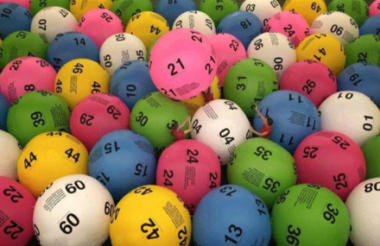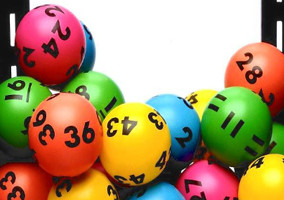The National Lottery raises only 2 per cent more for good causes than it did in 2010, putting distributing bodies like the Big Lottery Fund under pressure, a National Audit Office investigation has found.
But profits for shareholders at operator Camelot have risen by 122 per cent in the same period.
In the last year income for good causes fell by 15 per cent to £1.63 bn, while sales fell by 9 per cent.
The investigation report, which was carried out after lottery distributors raised concerns about the decline in sales, said that “increases in Camelot’s profits have been proportionately greater than increases in both Lottery sales and returns for good causes”.
Between 2009/10 and 2016/17 sales increased by 27 per cent to £6.9bn but returns increased 2 per cent to 1.5bn. Profit for shareholders increased by 122 per cent to £71m.
This is because the amount that Camelot keeps is linked to sales and not the amount raised for good causes. Some Lottery products raise higher amounts for good causes, and sales of those are rising.
Camelot said it had already taken action and that it has invested money in developing its offering.
Its current licence runs until 2023.
Good causes cash down by 20 per cent per pound
“The method of calculating returns for good causes was set in Camelots 2009 licence and does not reflect the changes in sales across different types of lottery games,” the report said.
Over the period covered by the investigation, sales of scratchcards and instant-win games have increased by 118 per cent to £2.9bn.
In 2009/10 scratchard and instant-win games accounted for 24 per cent of Camelot’s total sales but by 2016/17 it was 42 per cent.
The amount each game contributes to good causes is based on a complex calculation but NAO found that as of February 2017, draw-based games contributed between 28p and 34p per pound spent by consumers, while scratchcards contributed just 10p.
Between 2009/10 and 2016/17 returns for good causes per pound spent by consumers fell from 26.9p to 21.6p.
The investigation also found that the National Lottery faced greater competition from society lotteries and the wider gambling sector with newer players entering the market but that DCMS said “it is not aware of any evidence of any significant substitution of sales between the Lottery and society lotteries to date”.
Distributors under pressure
The NAO launched its investigation because distributing bodies, which include BLF, Sport England, the Heritage Lottery Fund and others, had raised concerns about the fall in income for good causes and their ability to meet future spending commitments.
At 31 March 2017 half of the six distributors which the NAO examined in detail had liablities in excess of their fund balance.
This includes the BLF, which has a fund balance of £399m but total liabilities of £1.4bn, £550m due within one year.
NAO said that none of the distributors had needed to invoke clauses in grant contracts which mean they can withdraw grants if they do not have sufficient funding.
“Some distributors had implemented other options to reduce costs, including scaling back grants made in 2016/17, and were considering other options for future grants to give them more flexibility in managing their funds,” it said.
Income projections
Distributors told the NAO that they relied on DCMS projections.
In 2015 it projected that income for 2016/17 there would be £1.8bn for good causes but it was actually £1.6bn.
NAO said “game changes, among other factors, can cause inaccuracies”.
Distributors have called for more data to be shared with them.
“The department (DCMS) does not give the distributors weekly sales figures split by game, even though they have asked for them. Distributors told us that prompt sharing of such data allows them to spot declining or increasing income early, helping them to plan their future grant awards,” the NAO investigation said.
“The department believes that weekly sales data does not provide a clear indication of trends due to the range of factors that may cause Lottery sales to fluctuate from week to week.”
Camelot response
In a statement Camelot said: “The National Audit Office report restates what we publicly acknowledged back in June in relation to National Lottery sales and returns to good causes. Since then, we have carried out a wide-ranging strategic review of the business and announced strong plans to get The National Lottery back into growth next year and raising as much money as possible for good causes. The good news is that we’re already seeing early signs of improvement as a result of what we’re doing.
“Under Camelot’s stewardship, The National Lottery has far exceeded original expectations in raising over £37bn for good causes since its launch in 1994, enabling more than 525,000 individual awards to be made across the UK – the equivalent of around 185 life-changing projects in every community. We continue to return around 95 per cent of all National Lottery revenue (almost £6.6bn in 2016/17) back to winners and society – one of the highest percentages in the world. In contrast, our profit after tax is around just 1 per cent of total revenue (£70.5m in 2016/17).
"Since the start of our third operating licence in 2009, returns to winners and society have increased by almost £1.8bn, while shareholder profit has increased by just £26m over the same period. In addition, our shareholder has invested £181m in capital expenditure – £98m more than the amount set out in its third licence business plan."
DCMS: ‘Must tackle the issue of falling sales’
A spokeswoman for DCMS said: “We have been completely clear to Camelot that its strategic review must tackle the issue of declining National Lottery sales. The Gambling Commission, which regulates the National Lottery, will also continue to challenge Camelot’s performance to ensure they maximise returns to good causes.”
A Big Lottery Fund spokesperson said: “We recognise the issue of National Lottery income levels raised in the NAO report. We have planned our budgets to manage fluctuations in income and maintain support for charities and communities across the UK.“We welcome the steps Camelot is taking to re-engage players and improve returns to Good Causes.”
Related articles











